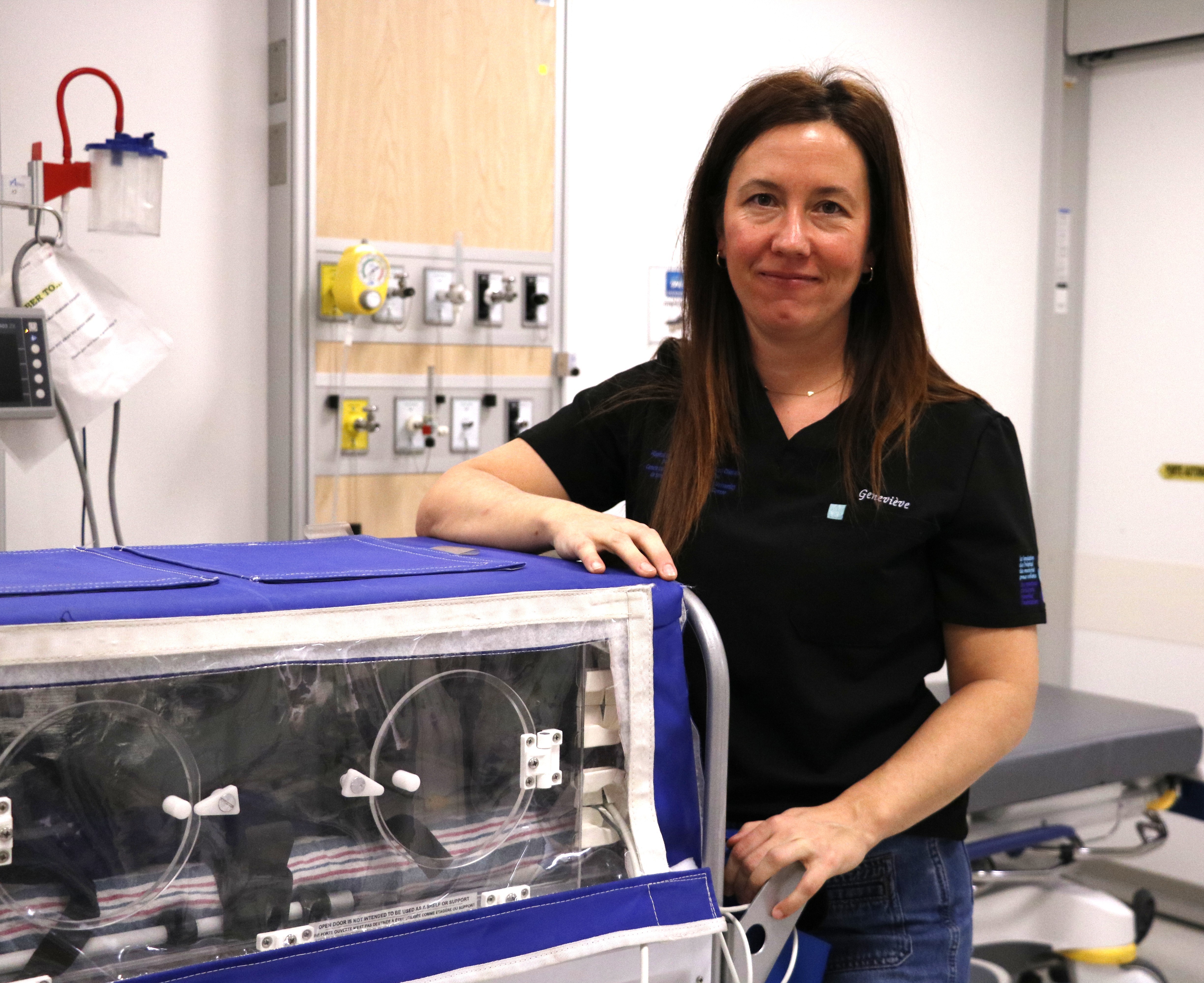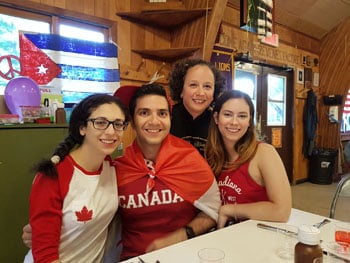
Celebrating Critical Care Transport Nurses at the MCH
18 February 2026
Rise in respiratory infections and measles outbreak: important infection prevention measures at the Montreal Children’s Hospital.
Read moreWelcome to the Montreal Children's Hospital

10 August 2017
Ste-Agathe summer camp helps normalize the management of diabetes for young patients
Managing type-1 diabetes can be tough for kids. Who doesn’t want to fit in with their peers? But at Camp Carowanis, having diabetes isn’t something unique to a particular child. It’s part of everyone’s experience – from young camper to camp counselor. And thanks to the loyal support of a number of healthcare specialists – including Children’s specialists — attending camp with diabetes has never been a more positive experience.
A fun-filled experience to normalize diabetes
“For a total of 6 weeks out of the summer, we have 90 to 95 campers on the site per day over a 2 week cycle, with about a third of them being patients followed at the Children’s,” explains Dr. Robert Barnes, Director of Professional Services and pediatric endocrinologist at the Montreal Children’s Hospital, as well as President of the camp.
“The camp serves to show kids that they aren’t the only one in their peer group that has to care about injections or having an embarrassing episode when their blood sugar level was low. Everyone there has already been through it. In fact, many of the camp counselors also have diabetes themselves, and serve as a great example that you can have diabetes and still be a cool older teen.”
Spanning over 150 acres of forested land by the shores of lake Didi in Ste-Agathe-des-Monts , Camp Carowanis has been in operation for 59 memorable summers, offering thousands of happy young campers a privileged space to have fun, learn and to feel empowered. A different physician is on site every week, along with a rotation of residents, medical students, nurses and nutritionists to help prescribe, manage and supervise meals, insulin injections and blood sugar levels throughout the day.
“With younger patients, we’re a bit more directive, but with older kids, we tend to act more as resource agents and supervisors, to help review some of their decisions together,” says Dr. Barnes. “Given that everyone is looking at their blood sugar at meal times, it provides younger patients the opportunity to learn how to administer their own needles in a supervised setting, and shows kids who may not have considered being on an insulin pump the chance to see other kids managing their pumps and open their eyes to different modalities of treatment.”
A summer camp like no other
“It’s hard to believe, but there was once a time when diabetes was considered too dangerous of a health condition to manage at a summer camp, depriving many kids with the condition from the camp experience,” says Dr. Barnes. “Camp Carowanis was created to ensure that all kids could benefit from the same activities as other children. From swimming in the lake to playing sports, to sleeping under the stars, the camp provides the benefit of having trained professionals available at all times. Kids can have a blast and also be safe.”
“Many of the older kids who’ve been coming for years can’t imagine a summer without Camp Carowanis,” says Dr. Barnes. “They can’t wait to become camp counselors themselves, and it’s a real milestone to be able to assume that responsibility.”
As it turns out, healthcare professionals also report the experience as being one of the highlights of their summer, with many medical students and residents rating it as one of the highlights of their careers. “It’s a fantastic experience for everyone involved,” says Dr. Barnes.